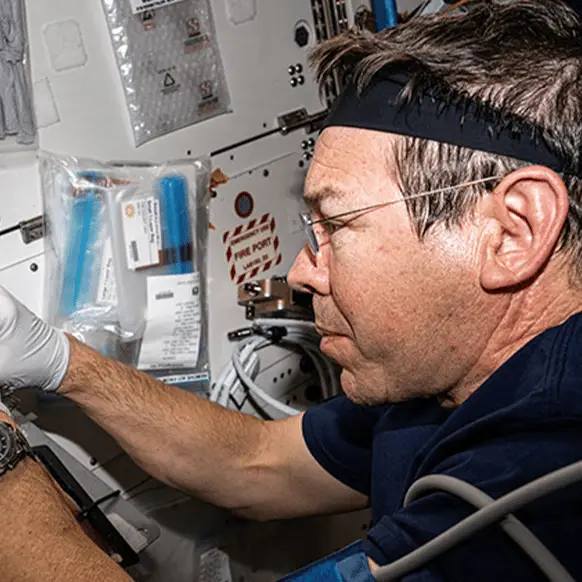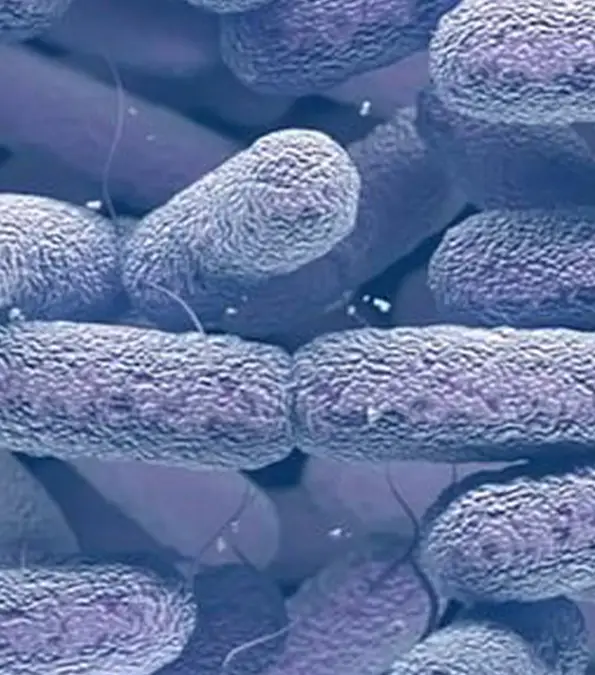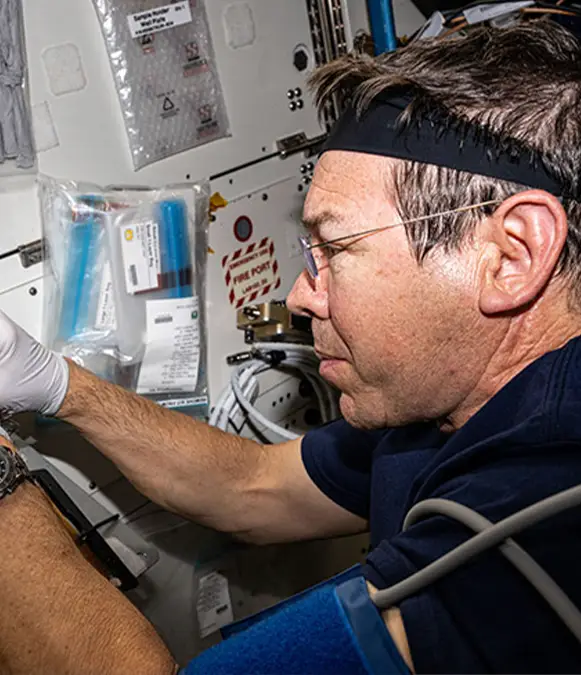
Researchers discovered 13 strains of the bacteria that are linked to blood infections on the International Space Station (ISS).
The bacteria known as Enterobacter bugandensis could potentially endanger the lives of the astronauts onboard.
What's even worse is that these bacteria have developed antibiotic resistance due to them being forced to mutate and adapt to extreme conditions.
According to a NASA press release, scientists from the Jet Propulsion Lab analysed samples of these drug-resistant bacteria from the space station and discovered that the strains had evolved into forms not found on Earth.
Advert
This unfortunately means that several antibiotic treatments are no longer effective in fighting it off.

"Study findings indicate that under stress, the ISS isolated strains were mutated and became genetically and functionally distinct compared to their Earth counterparts," the press release reads.
"The strains were able to viably persist in the ISS over time in significant abundances."
The authors wrote: “We identified certain genes from our study that are exclusively present in organisms associated with the ISS, but not in their terrestrial counterpart."
Interestingly, E. bugandensis not only co-exists with "multiple other microorganisms," but in some instances, demonstrated to help other organisms survive.
This type of mutual existence could have contributed to the bacteria's ability to adapt to the high carbon dioxide levels, high radiation and low gravity of the ISS environment.
NASA is currently on its second microbial tracking mission, which involves astronauts collecting samples from different areas of the ISS to study the microbial changes under space conditions.

The mission involves the astronauts scraping the walls of the ISS to see what they can reveal under the microscope.
Overall, the bacteria were found in three locations aboard the station: four in the air circulation system, one on an exercise device and eight in the laboratory's bathroom.
"Closed human-built environments, such as the ISS, are unique areas that provide an extreme environment subject to microgravity, radiation, and elevated carbon dioxide levels," the press release explained.
"Any microorganisms introduced to these areas must adapt to thrive."
E. bugandensis is known as an opportunistic pathogen in which it can cause disease only if the host is already "perturbed", i.e. if the individual is already battling a disease of some sort or if they are immunocompromised.
This study hopes to help contribute to our understanding of the genetic evolution of pathogens and ultimately add to science's growing understanding of maintaining health in space.